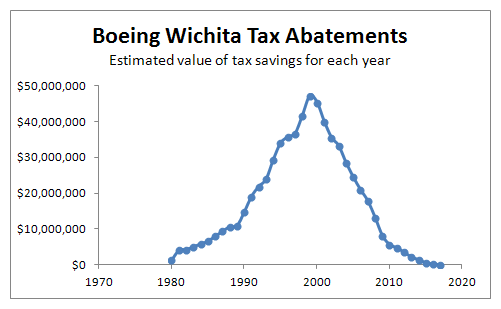Tag: Pete Meitzner
-

A Wichita Shocker, redux
Based on events in Wichita, the Wall Street Journal wrote “What Americans seem to want most from government these days is equal treatment. They increasingly realize that powerful government nearly always helps the powerful …” But Wichita’s elites don’t seem to understand this.
-
WichitaLiberty.TV: Transportation issues in Wichita
In this excerpt from WichitaLiberty.TV: Wichita’s legislative agenda concerning transportation issues is unsound.
-

In Wichita, the need for campaign finance reform
Actions of the Wichita City Council have shown that campaign finance reform is needed. Citizen groups are investigating how to accomplish this needed reform, since the council has not shown interest in reforming itself.
-

Options for funding Wichita’s future water supply
Now that the proposed Wichita sales tax has failed, how should Wichita pay for a future water supply?
-

Wichita economic development items
The Wichita city council has been busy with economic development items, and more are upcoming.
-

City of Wichita State Legislative Agenda: Passenger rail
Instead of calling for the expansion of Amtrak — perhaps the worst of all federal agencies — the City of Wichita should do taxpayers a favor and call for an end to government subsidy of Amtrak everywhere.
-
Not all Wichita candidates support your right to know
Not all candidates for Wichita city offices support citizens’ right to know how taxpayer money is spent.
-

Wichita to consider tax exemptions
A Wichita company asks for property and sales tax exemptions on the same day Wichita voters decide whether to increase the sales tax, including the tax on groceries.
-

Claims of future transparency of Wichita tax money spending
Claims by boosters of a proposed Wichita sales tax that the city will be transparent in how money is spent must be examined in light of the city’s attitude towards citizens’ right to know.
-

WichitaLiberty.TV: Wichita’s missing water, sales tax, Gidget, smartphone activism
A former Wichita mayor wonders what happened to Wichita’s water supply. Then, meet Gidget, a Kansas blogger I think you will enjoy. Finally, how can you use your smartphone to help candidates and causes?
-

WichitaLiberty.TV: Waste, economic development, and water issues.
Wichitans ought to ask city hall to stop blatant waste before it asks for more taxes. Then, a few questions about economic development incentives. Finally, how should we pay for a new water source, and is city hall open to outside ideas?
-

For Wichita leaders, novel alternatives on water not welcome
A forum on water issues featured a presentation by Wichita city officials and was attended by other city officials, but the city missed a learning opportunity.